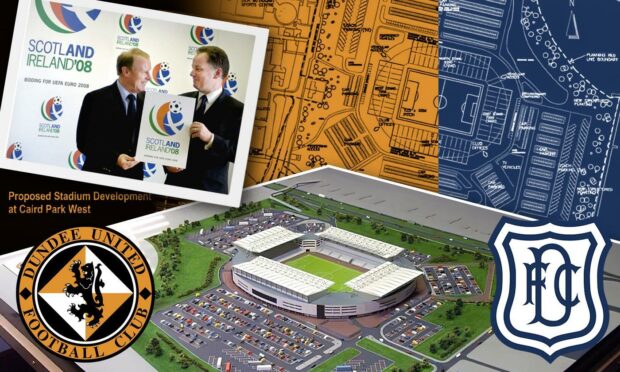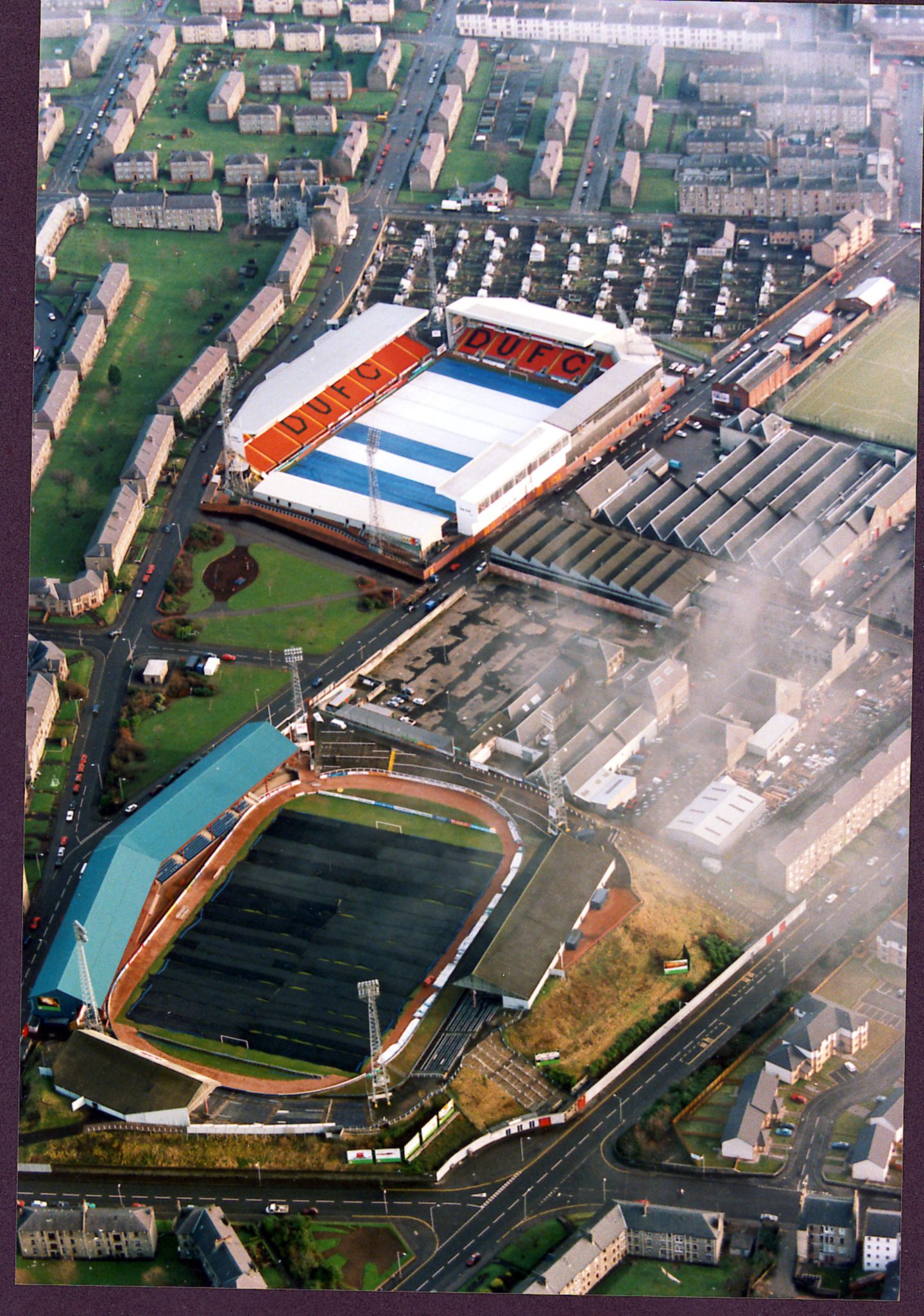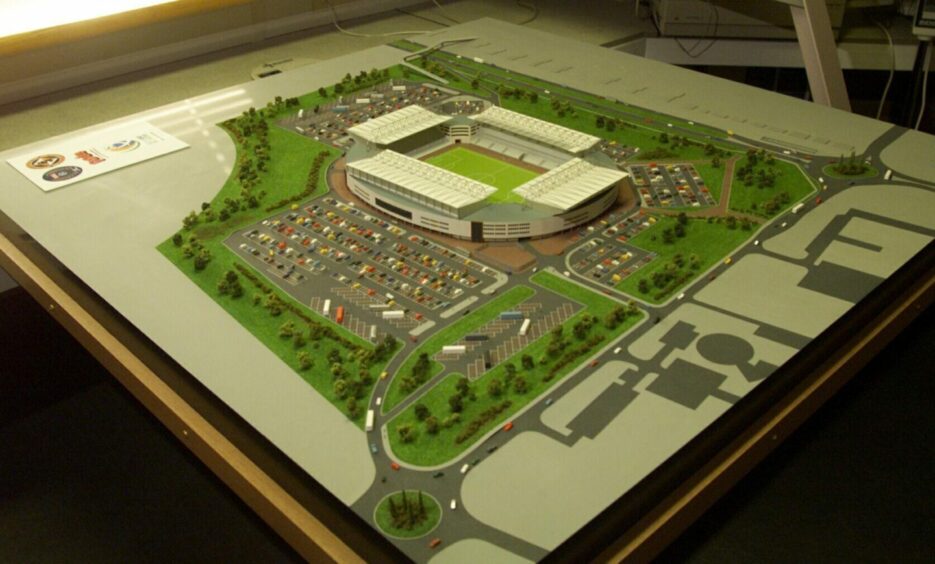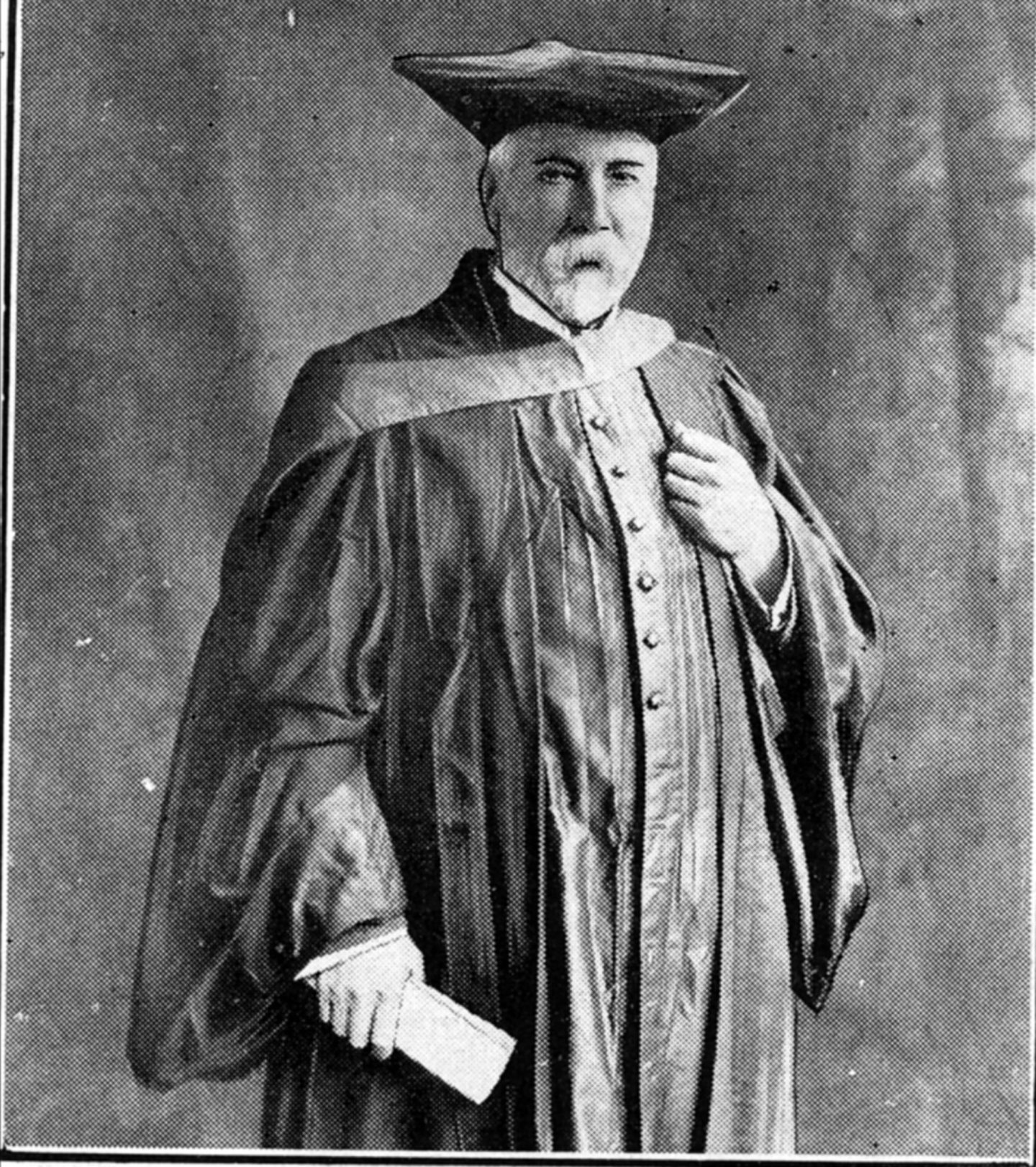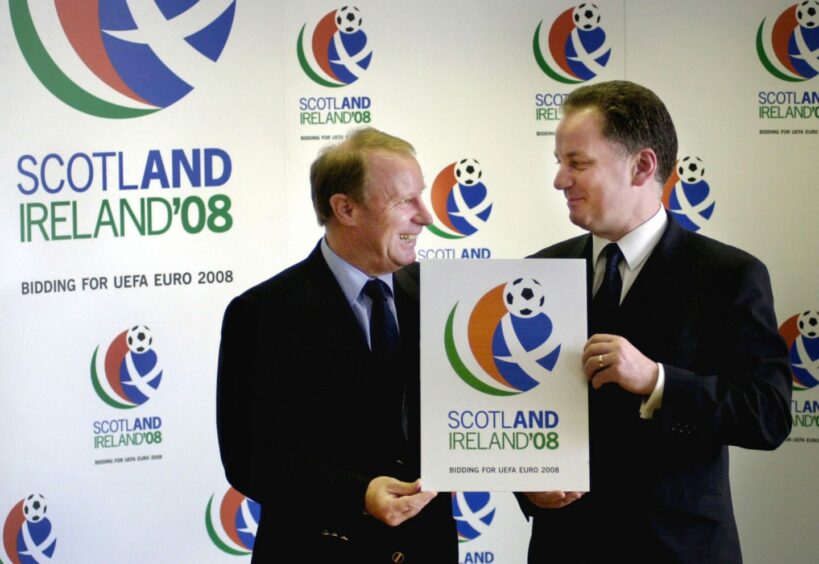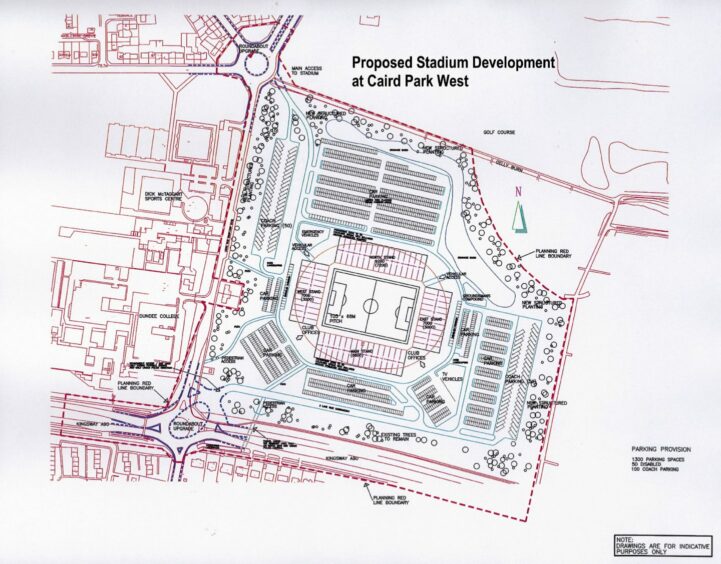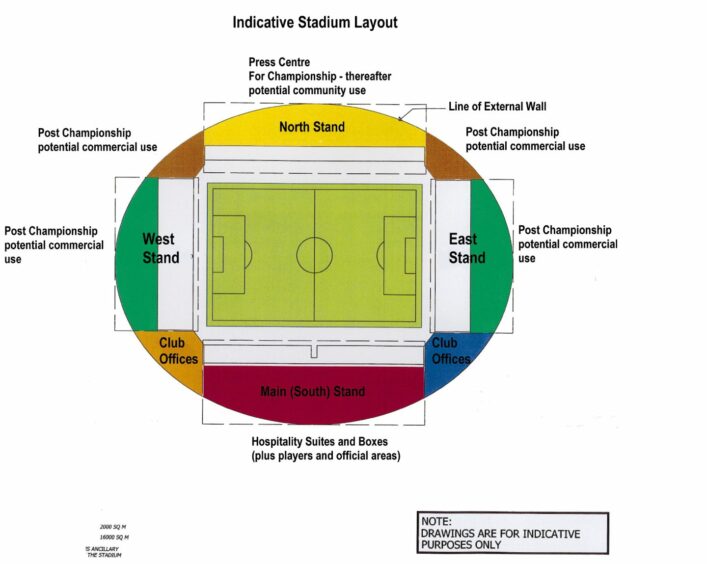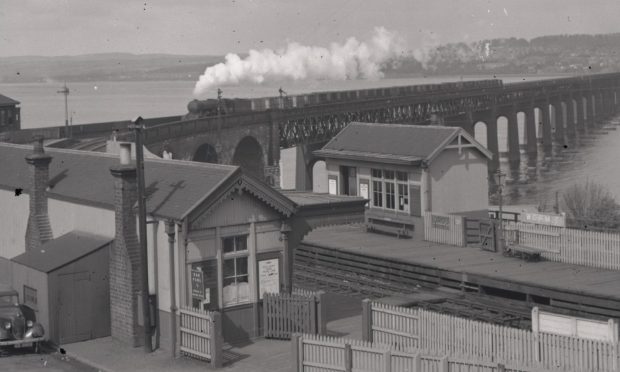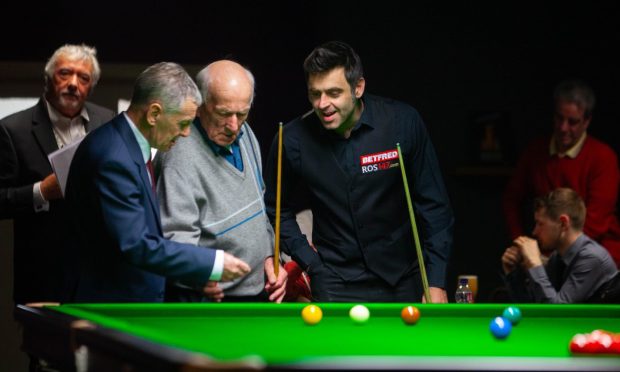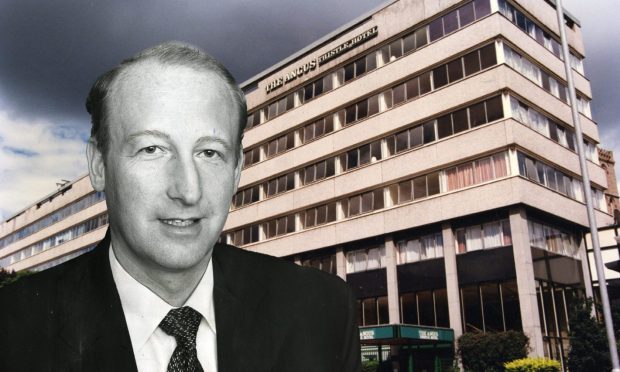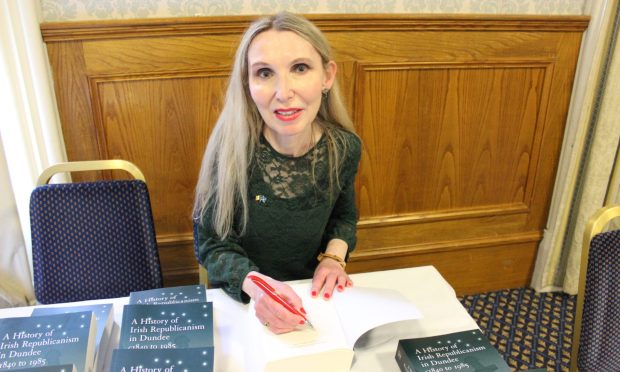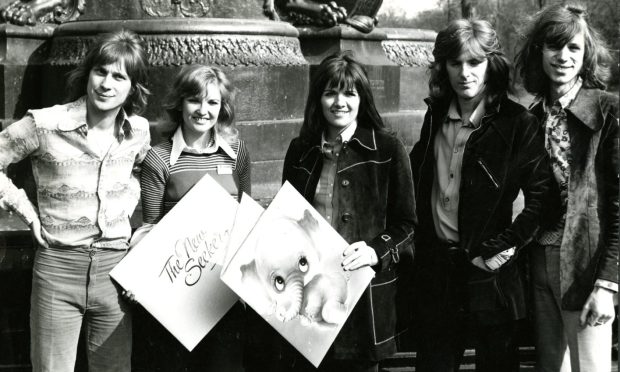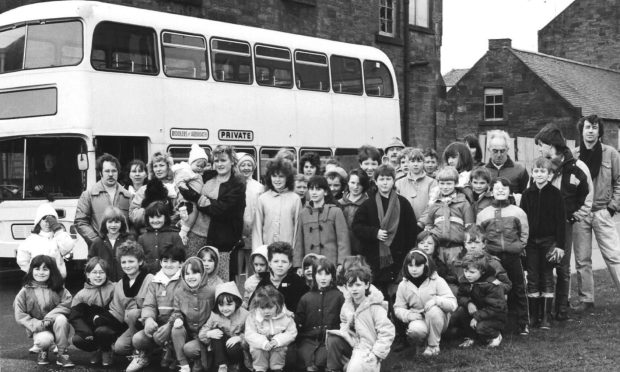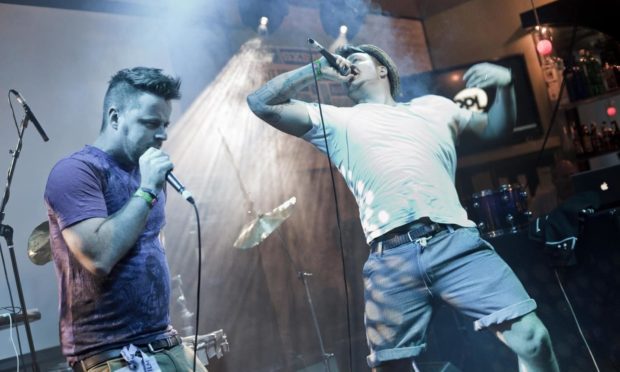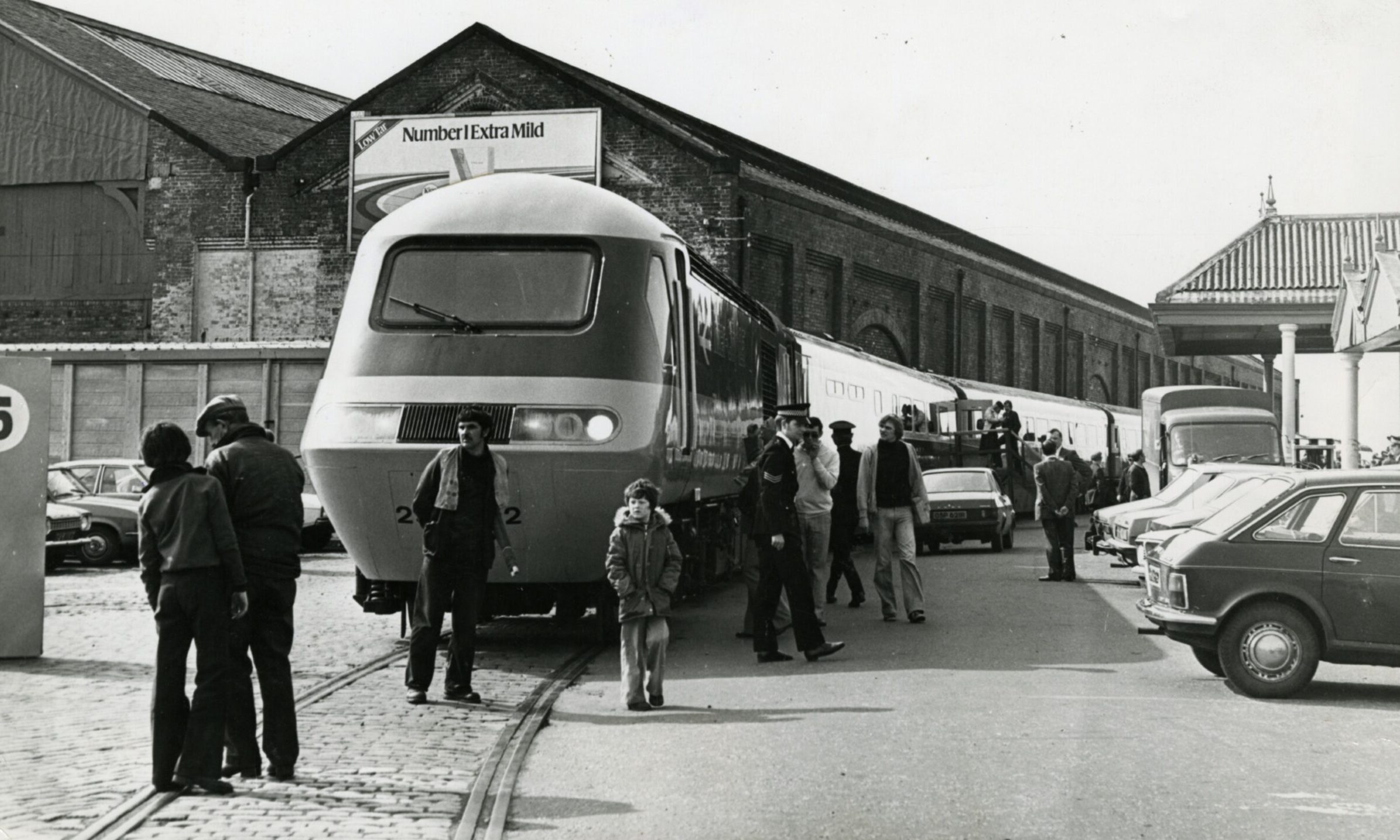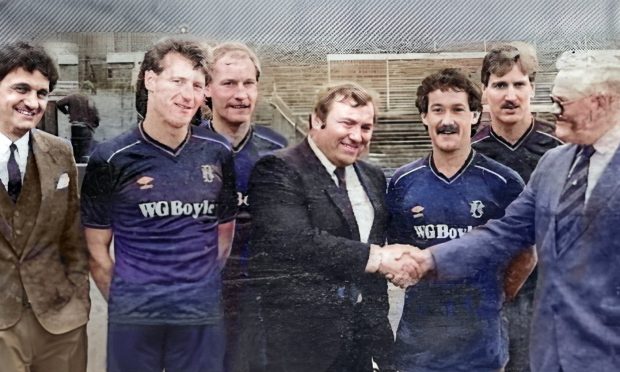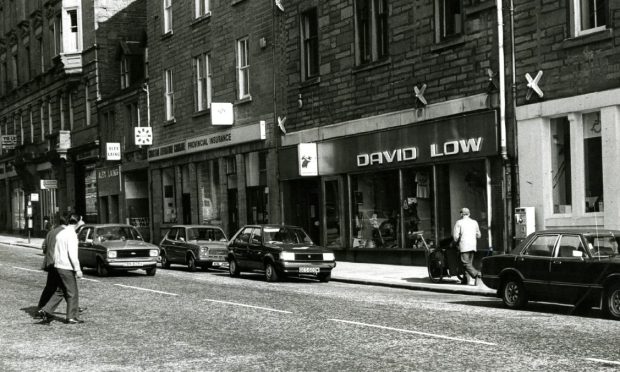Dundee and Dundee United submitted plans for a shared stadium 20 years ago which would have sounded the death knell for Dens and Tannadice.
The city rivals agreed to join forces and build a 30,000-seater stadium at Caird Park costing £30 million as part of Scotland’s bid to host Euro 2008.
Now, two decades on, the question of Dundee FC’s home is in the news once again, as moves progress to build a new stadium at Camperdown Park.
Back in 2001, things were different.
Scotland had launched its bid to host the 2008 Euros and needed a minimum of six stadiums with a capacity of more than 30,000.
As it stood, they only had four – Hampden, Ibrox, Celtic Park and Murrayfield.
On top of that, three of those were in Glasgow.
Two new stadiums would have to be built or existing stadiums upgraded.
A statement issued by Scottish Enterprise Tayside said a case would be put forward to build a new stadium in Dundee to be shared by both clubs.
Several times in the past, plans for a shared arena were mooted, without serious progress ever being made.
Aberdeen then announced its own plans to build a 30,000-seater stadium at Kingswells and Hibernian wanted to extend Easter Road to meet the criteria.
Caird Park
Caird Park was chosen from 25 sites in Dundee and the new stadium would take over ground occupied by four holes of the golf course and two rugby pitches.
A joint statement issued by the clubs read: “The boards of Dundee FC and Dundee United FC believe that sharing a stadium would not present any major problems to either club.
“However, it is important that any rumours that a joint stadium would be a pre-cursor to amalgamation are quashed.
“Neither Dundee FC or Dundee United FC have any interest in a merger.
“Both have their own distinct and separate identities of which they are extremely proud.”
The plans were lodged in November 2001.
A protest group was immediately set up to fight the multi-million-pound proposals.
One of the main hurdles was the legally-binding conditions which were attached to the original purchase of the 270-acre site in 1913 from money gifted by Sir James Caird, who was one of Dundee’s most successful entrepreneurs.
The legal document concerning the purchase made it clear the land was to be used only as a public park and for recreational purposes for “all time coming”.
Objectors were pinning some of their hopes on the fact that the conditions would carry sufficient force to stop the stadium project in its tracks.
Members of Caird Park Golf Club added their voices to the chorus of disapproval and voted at their annual general meeting to oppose any changes.
Caird Park would be able to hold crowds of at least 30,000 during the tournament but would then be reduced to 20,000 once Euro 2008 was over.
The joint bid started to fall apart almost immediately.
First Minister Henry McLeish resigned following a row about office expenses.
Jack McConnell replaced him.
Uefa then announced that eight, and not six, stadiums would be needed.
On January 23 2002, Mr McConnell announced his decision to withdraw Scottish Executive support for the Scottish-only bid and sought help from Ireland.
“As a football fan and Scot, I understand the excitement and enthusiasm behind the argument of Scotland going it alone,” he said.
“However, when it became apparent that eight stadiums rather than six would be required to stage the event, a solo bid was not an option.
“Scotland simply could not sustain eight major stadiums of the size required.”
Dundee was effectively now thrust into competition with Aberdeen and Hibernian’s Easter Road stadium in hoping to become one of the two Scottish sites.
A public exhibition of the plans was held at Dundee College in February 2002.
The application was approved by Dundee councillors in April, subject to 37 conditions despite 300 objections being lodged by protesters.
The final document for the joint bid was sent off to European football’s governing body with the backing of Manchester United’s manager Sir Alex Ferguson.
The glossy synopsis of the bid document said a choice would be made between proposed new stadiums in Dundee, Aberdeen and Easter Road in Edinburgh.
“Three new stadiums are included in the bid and each will bring significant benefits,” said the bid document.
“Dundee Stadium will allow the city’s two professional football clubs to share vastly improved facilities just outside the city centre.
“Aberdeen’s proposed new ground will provide a new centre of sporting excellence for the north-east of Scotland.”
The brochure listed St Johnstone’s McDiarmid Park in Perth and Arbroath FC’s Gayfield as two of Scotland’s 21 training grounds for Euro 2008.
Well-placed sources said Dundee was the Scottish Executive’s number one choice for a new stadium because the Edinburgh bid was “too Central Belt”.
Sports minister Mike Watson was also a Dundonian and a Dundee United supporter whose pivotal role in the bid was being seen as advantageous for the city.
He said: “I have seen opinion polls showing a majority in support of Dundee’s involvement and that is heartening.
“Historically, it has not been easy to bring the two city clubs together but my meeting with Scottish Enterprise Tayside, United chairman Scott Carnegie and Dundee chief executive Peter Marr persuaded me there is a great desire to see this through.
“As a Dundonian and a United supporter I would not like to see a merger but don’t see a problem in the clubs sharing a ground.
“It is the way forward for football in a city with a great tradition.”
Legal obstacles
Although the Caird Park proposal was given outline planning permission, there were still legal obstacles to clear with regard to the legally-binding conditions.
Dundee City Council’s petition to the Court of Session for permission was eventually granted subject to the joint Scottish-Irish bid being successful.
There was a bigger problem, however.
Ireland was under-stocked on the stadium front.
The bid was thrown into turmoil when the Irish government announced that it would now be unable to fund its proposed Stadium Ireland project.
The stadium was viewed to be central to the Irish part of the bid.
The dream went up in smoke when Uefa’s Executive Committee awarded the honour to Austria and Switzerland in December 2002.
Dundee and Dundee United talked of “alternative possibilities” and refused to dismiss the ground-sharing proposal outright despite the disappointment.
Without public funding, however, it was dead in the water.
The plan fizzled out, although the issue did rear its head again when Scotland considered a joint bid with Wales for Euro 2016.
Scotland eventually decided against pursuing a joint bid.
In 2017 Dundee’s American owners revealed the club was pursuing a move away from its deteriorating home at Dens to a new stadium at Camperdown.
More like this:
Why was Walter Smith known as The Bear during his Dundee United days?
Victor Ferreyra: Post-Maradona poster boy became a Dundee United cult hero
